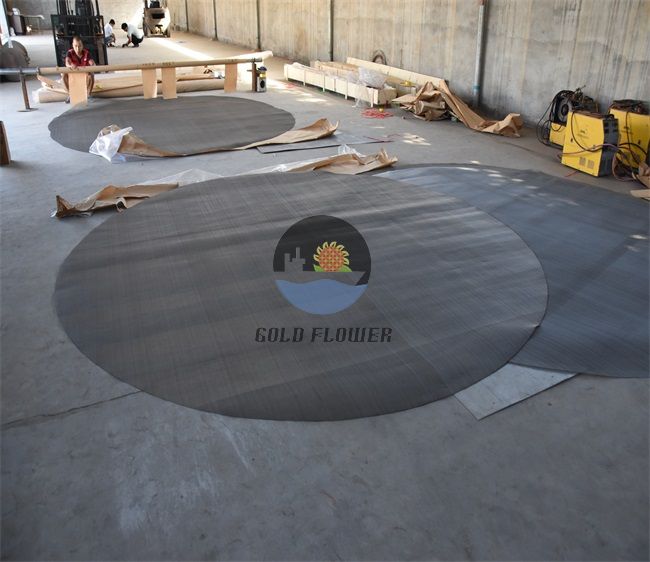Aug . 14, 2024 02:36 Back to list
Exploring the Benefits and Applications of Mesh Wire Filters in Various Industries
The Importance of Mesh Wire Filters in Industrial Applications
In various industrial processes, the need for effective filtration is paramount. One of the most reliable types of filtration systems is the mesh wire filter. These filters employ a net-like arrangement of wires to capture unwanted particles while allowing fluids to pass through, making them an essential component in numerous applications ranging from food and beverage processing to chemical manufacturing and water treatment.
Structure and Material
Mesh wire filters are typically constructed from materials such as stainless steel, nylon, or polypropylene, depending on the specific requirements of the application. The mesh itself is made up of interwoven strands of wire, which can be produced in various weave patterns, including plain, twill, or Dutch weave. The choice of weave affects both the filter's durability and its filtering capabilities, with tighter weaves generally able to capture smaller particles.
Versatility and Applications
The versatility of mesh wire filters is one of their greatest strengths. For instance, in the food and beverage industry, these filters are commonly used to remove debris from liquids to ensure product purity and safety. Whether it's filtering beer during brewing, clarifying juices, or processing edible oils, mesh wire filters play a vital role in maintaining high-quality standards.
In the chemical industry, these filters are crucial for separating solids from liquids, particularly in processes involving slurries or suspensions. They help reduce equipment wear and tear by preventing particulates from clogging pumps and other machinery. Additionally, in water treatment facilities, mesh wire filters are employed to eliminate sediments and contaminants, ensuring clean water for consumption and use.
mesh wire filter

Efficiency and Maintenance
Mesh wire filters are known for their efficiency. They can be designed to accommodate a wide range of flow rates and pressures, making them suitable for both small-scale operations and large industrial systems. The easy-to-clean nature of these filters enhances their performance, as operators can simply backflush or rinse them to maintain optimal filtration without needing to replace them frequently. This can lead to significant cost savings over time, as the longevity of the filter reduces the need for constant replacements.
Environmental Benefits
Using mesh wire filters also aligns with sustainable practices. By minimizing waste and allowing for the recycling of the filtered materials, these filters contribute to a more sustainable production cycle. For example, in the recycling industry, mesh wire filters can help recover valuable materials from waste streams, which can then be reused or repurposed.
Conclusion
In conclusion, mesh wire filters are an indispensable tool in a myriad of industries, providing essential filtration capabilities that enhance product quality, operational efficiency, and environmental sustainability. Their robust design and versatility make them suitable for various applications, from food and beverage processing to chemical manufacturing and water treatment. As industries continue to evolve and place greater emphasis on efficiency and sustainability, the role of mesh wire filters is only set to increase. Investing in high-quality mesh wire filtration systems can lead to improved process performance and reduced operational costs, making them a wise choice for businesses looking to optimize their filtration processes.
share
-
CE Certified Woven Wire Mesh Filters | Premium Filtration Solutions
NewsAug.19,2025
-
High-Performance Particle Filters: Optimal Mediums & Applications
NewsAug.18,2025
-
Competitive Screen Mesh Price | 1/4", 1/8", 1/2" Wire Mesh Screens
NewsAug.17,2025
-
CE Certified 250 Micron SS Mesh: Precision & Durability
NewsAug.15,2025
-
CE Certified 250 Micron Stainless Steel Mesh - Durable & Precise
NewsAug.14,2025
-
Precision CE Certified 250 Micron Stainless Steel Mesh
NewsAug.13,2025

